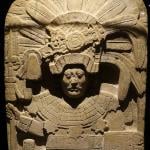Another Friday? Yes. So there’s another new article in Interpreter: A Journal of Mormon Scripture, this one written by Dr. Matthew Bowen, of Brigham Young University’s campus in Hawaii: “‘He Did Go About Secretly’: Additional Thoughts on the Literary Use of Alma’s Name” *** The latest installment of the biweekly Hamblin-Peterson column in the Deseret News: “Impact of the Russian religious revolution” *** An interesting program on the Book of Abraham, in which... Read more

















